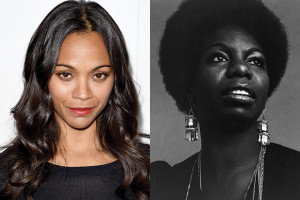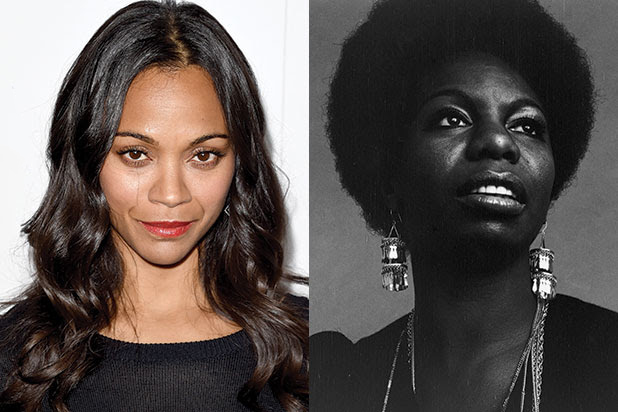On Nina Simone and Colorism

On Friday, April 22, Nina, the Nina Simone biopic was released. The film stars Zoe Saldana as the film’s title character. Many have not been happy about her portrayal.
Much of the backlash is based in the choice of the actress. People do not believe that she was an appropriate choice for the role.
Nina Simone was a civil rights activists as well as a music icon. She centered her experiences as a black woman in much of her art. More specifically, her experiences as a dark-skinned black woman.
When asked about the casting of Saldana in a 2012 New York Times interview, Lisa Simone Kelly, Simone’s daughter, did not think she was the best choice. Kelly said, “My mother was raised in at a time when she was told her nose was too wide [and] her skin was too dark. Appearance –wise, this is not the best choice.”
In the film, Saldana dons a wig and a prosthetic nose for the role of Simone. She also darkens her skin with makeup. This has led many to say that her portrayal was an act of black face, or as some have called it blacker face.
Many have charged the casting of the film with accusations of colorism. Colorism is the discrimination based on the darkness of one’s skin color. Hiring an actress of a lighter skin tone to portray Simone is viewed as an insult to Simone’s legacy.
Saldana was also hesitant to take on the role. In 2015, in an interview with InStyle, Saldana said, “I didn’t think I was right for the part, and I know a lot of people will agree.” She was right.
Many have claimed that this casting hiccup has sparked a debate about colorism in Hollywood. “Sparked” connotes a beginning which really wouldn’t be appropriate considering this topic has been around for quite a while. The word “rehashed” would probably be a better term.
This conversation seems as old as time itself. The representation of darker skinned black women in film and television has left much to be desired. The idea of a film that focused on the life of Nina Simone became a very big deal to many young women who could identify with Simone.
A film that focused on a woman who embraced her dark skin, coarse hair and wide nose meant something. Simone’s face mattered. This is something that the casting directors and Saldana may have missed.
Her looks were central to who she was. Casting someone who could possibly relate as well as turn in a great performance would have been more ideal. The choice to simply darken the skin of a lighter-skinned actress seems to miss the entire point of Nina Simone’s work and activism.
This is not simply about casting the best actress for a role or, let’s be honest, the actress who would bring in the most box office dollars. It is about telling the story of a woman who meant so much to the civil rights movement and music.
It is about telling the story of a woman who represents a lot for black women who do not look like Zoe Saldana.

